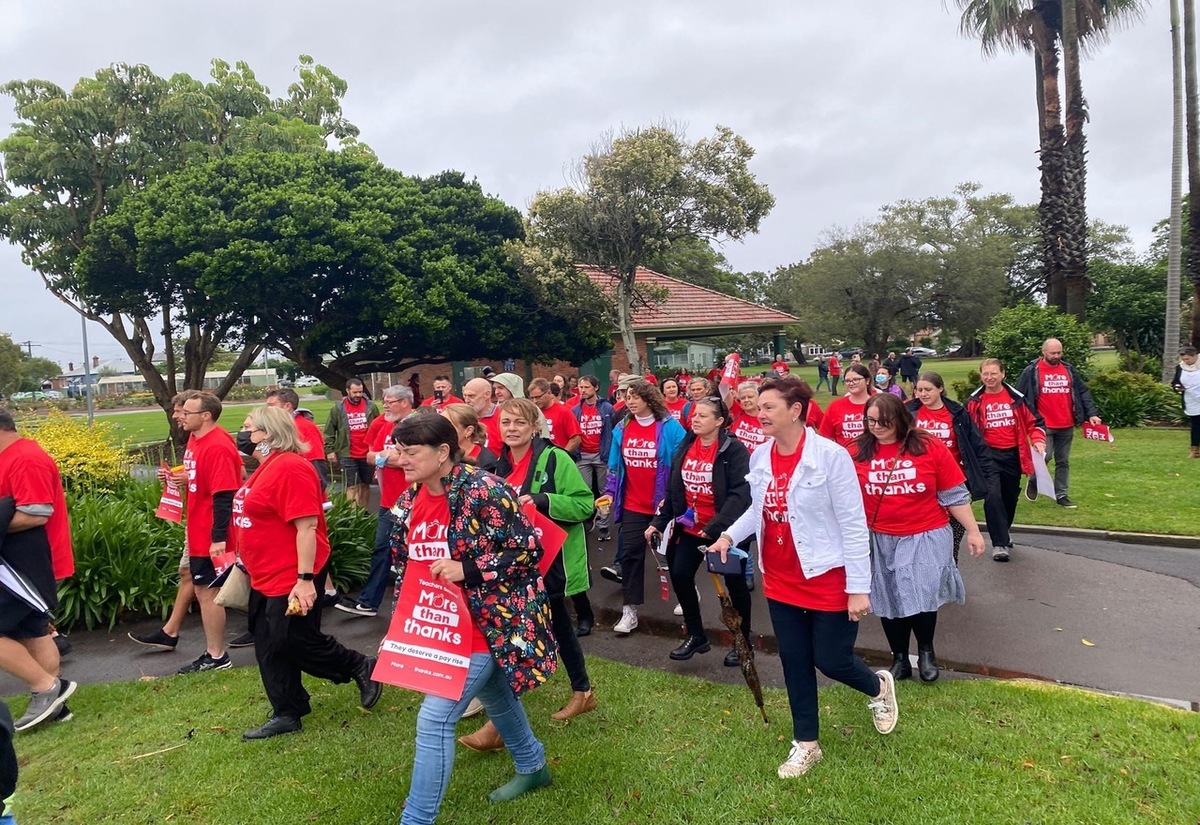Teachers will strike tomorrow, wanting more than thanks
Laura Williams
06 December 2021, 3:46 AM
 The strike is an effort to gain more competitive salaries and reduce workload. (Image: NSW Teachers Federation)
The strike is an effort to gain more competitive salaries and reduce workload. (Image: NSW Teachers Federation)For the first time in over ten years, tomorrow teachers around the state will join forces in an organised strike for better working conditions.
Dubbo’s NSW Teachers Federation Organiser Tim Danaher said the strike is a final resort after months of dwindling classroom conditions.
“It’s 18 months of negotiations with the department (of education). They’ve pretty much ignored their own research that shows the massive staff shortage across NSW. Their refusal to act and to acknowledge workload and an uncompetitive salary is why there will be action on Tuesday,” Mr Danaher said.
A key focus of the strike is the continuously decreasing numbers of teachers, leading to a prediction that NSW could run out of teachers in five years, according to a 2020 government report.
The 24-hour stoppage is the first in a decade and is the result of a unanimous vote from the NSW Teachers Federation Council.
Since the strike was announced last week, the state government has announced an $8 million incentives packages to promote temporary teaching positions in regional NSW.
Deputy Premier Paul Toole said the package will include an additional salary of up to $30,000, as well as travel, living and housing incentives.
“We want all teachers to feel comfortable to expand their horizons and consider relocating to the bush and we know once they get there, they won’t look back,” Mr Toole said.
Mr Danaher said that while the incentive package was well overdue, it isn’t enough to prevent tomorrow’s strike, nor fix the ongoing conditions teachers are dealing with.
“In the 1970s there were 6000 scholarships that thank you for coming to the profession. This year they’ve (handed out) 600 and think that that’s going to fix the problem,” Mr Danaher said.
Instead, teachers are interested in a fix to the growing workload that has come of schools being unable to fill teaching positions, where the number of vacant permanent positions in schools has increased by 80 per cent just from June.
According to the NSW Teachers Federation, one in five teachers are teaching outside their subject area.
An uncompetitive salary, particularly in comparison with other professions, is apparently a key contributor to the decline in teachers being trained.
The Industrial Relations Commission has ruled that any industrial action by the Federation - including tomorrow’s strike – is illegal while negotiations are underway.
Although flooded roads have prevented some local schools from making the distance to the regional rally to be held in Dubbo, staff in some schools are coming together in support of the cause.
President of the Coonamble Teachers Association Raymond Happ said that participating staff of Coonamble Public School and Coonamble High School will meet at the local bowling club where they will livestream the main event in Sydney.
Although parents have been warned that staff supervision could be low tomorrow, there will be staff on duty at school for students who have nowhere else to go.
“When you hear the word strike some people have mixed feelings about it. The majority of staff here are in agreeance that the workload and salary issues are big enough to warrant the need for a strike,” Mr Happ said.
Mr Happ said that while there are incentives for teaching positions at his school, they often aren’t enough to outweigh the current conditions.
“One of the big issues is administrative workload when it comes to paperwork and compliance. We’re talking about a couple of hours extra here and there that has been built up due to necessary policies and various compliance measures. It means that we’ve been given so much administration, but not enough time to do it,” Mr Happ said.
According to Mr Happ, stopping the strike before tomorrow is simple.
“The Teachers Federation has made a request for reduced time face to face and an increase in salary. If those were granted, I think that would stop the strike straight away,” he said.
Negotiations are continuing under the Industrial Relations Commission, although so far they have not been able to reach an agreement.